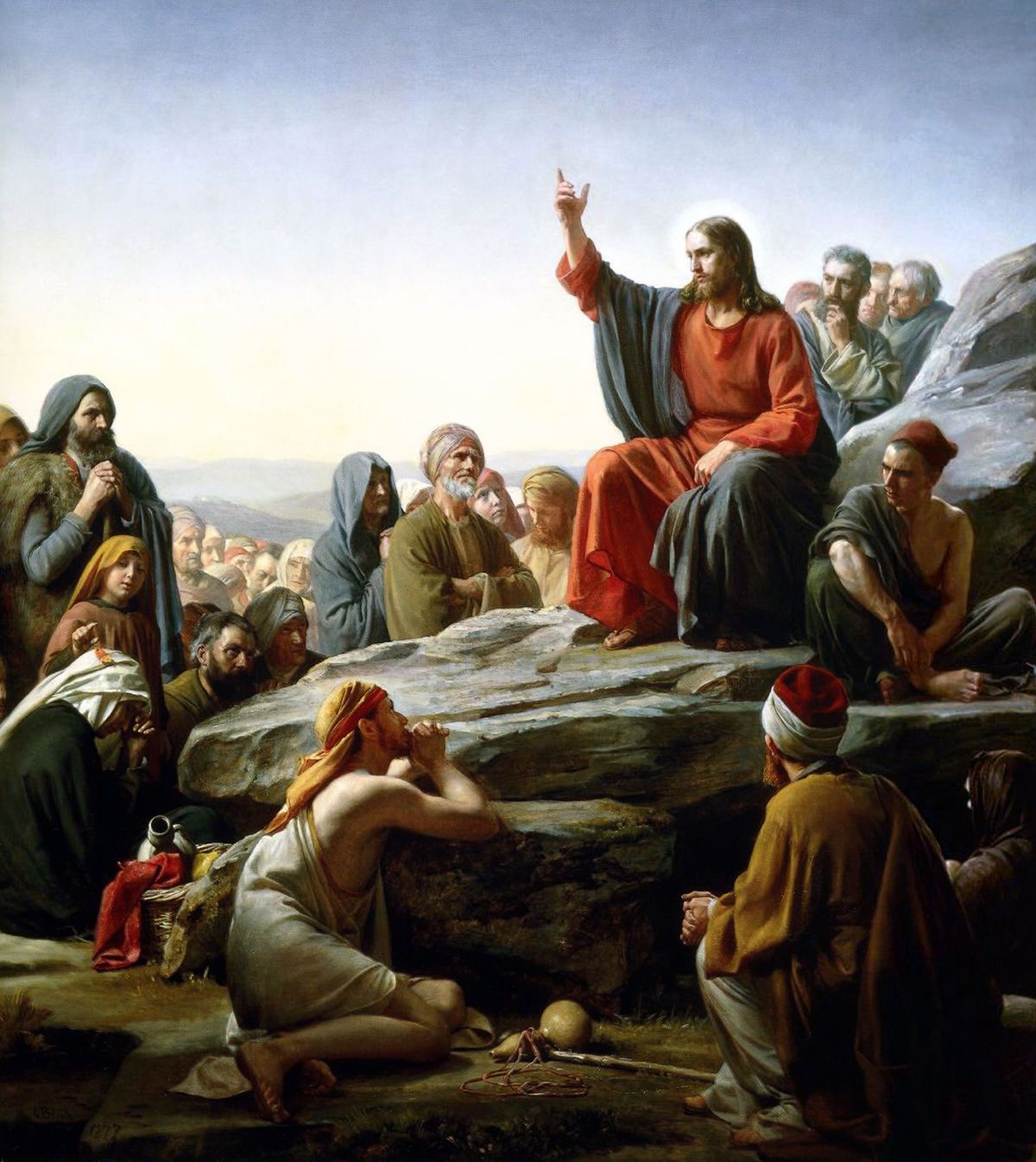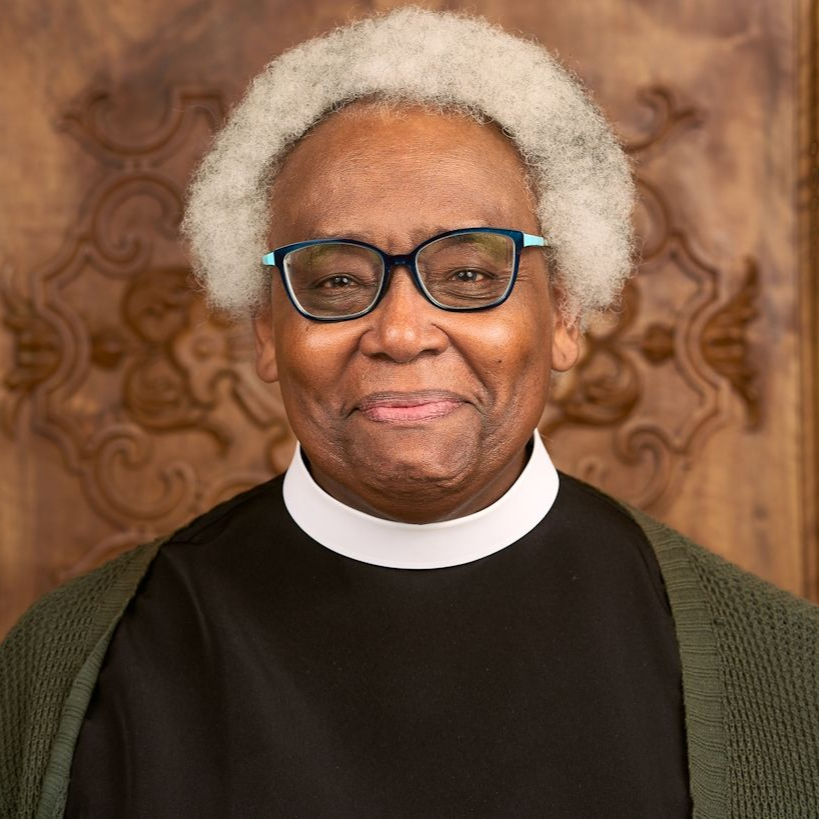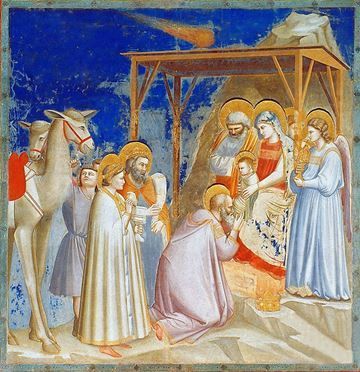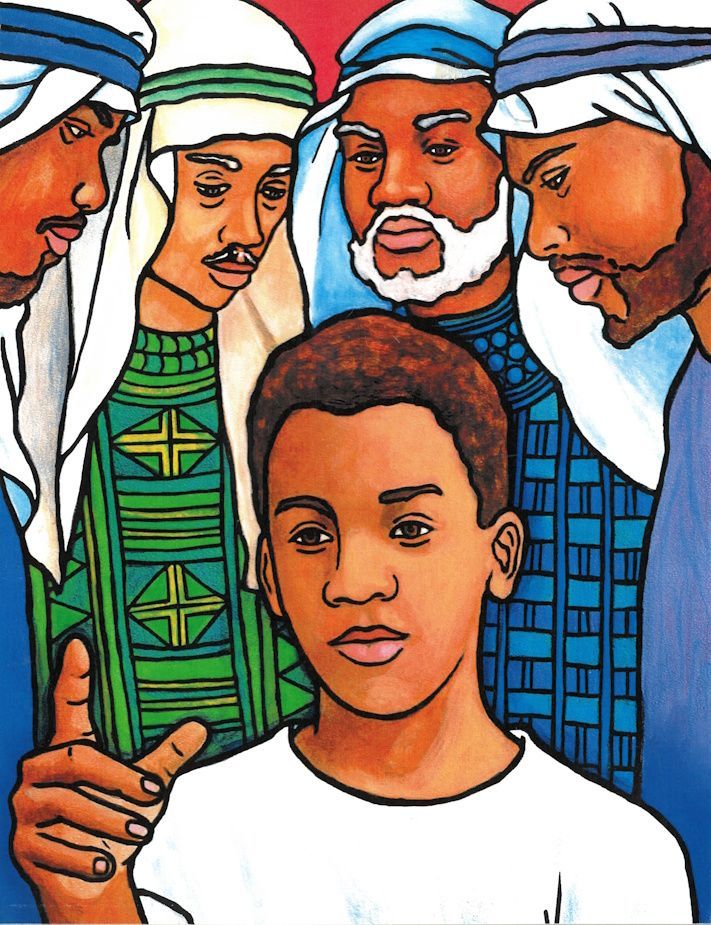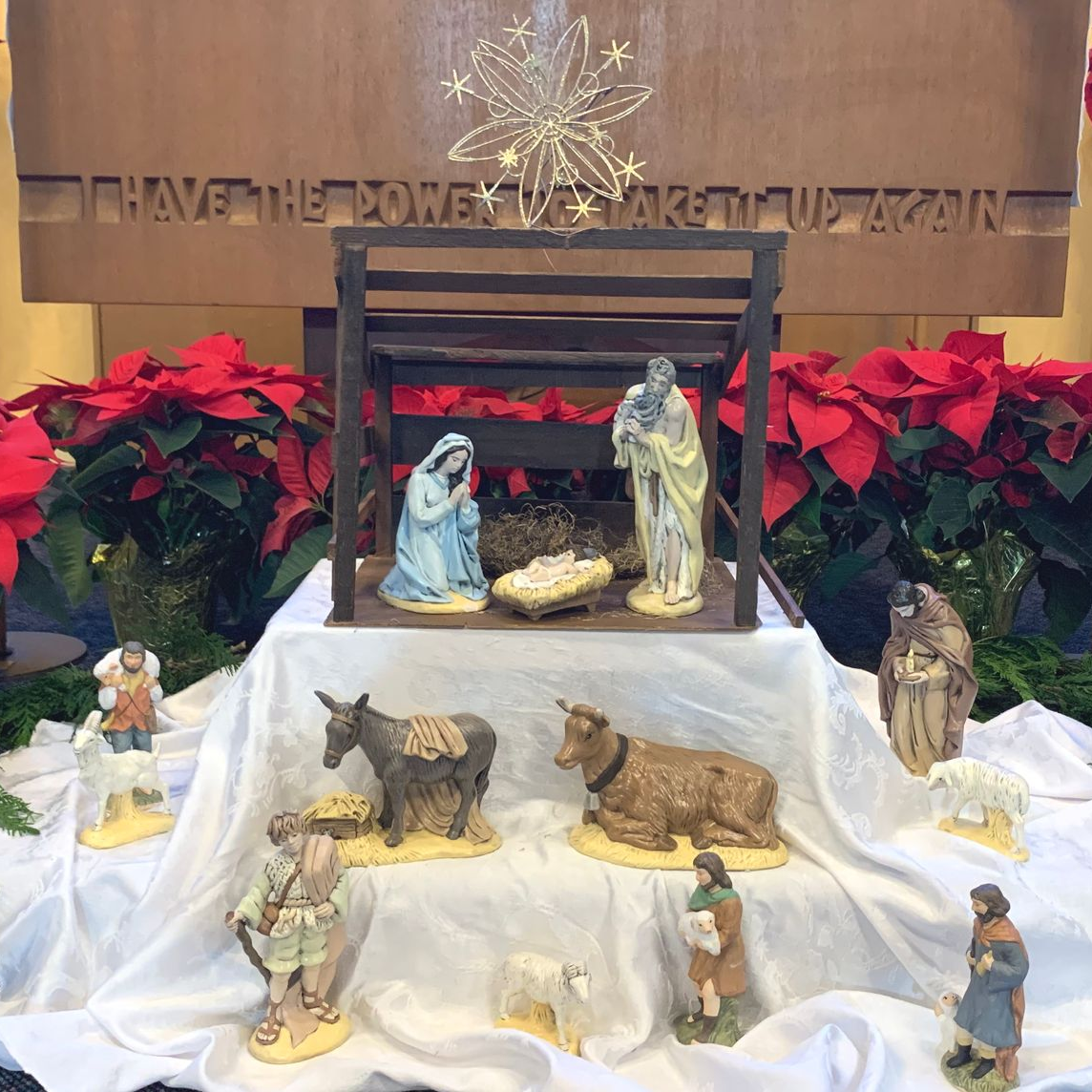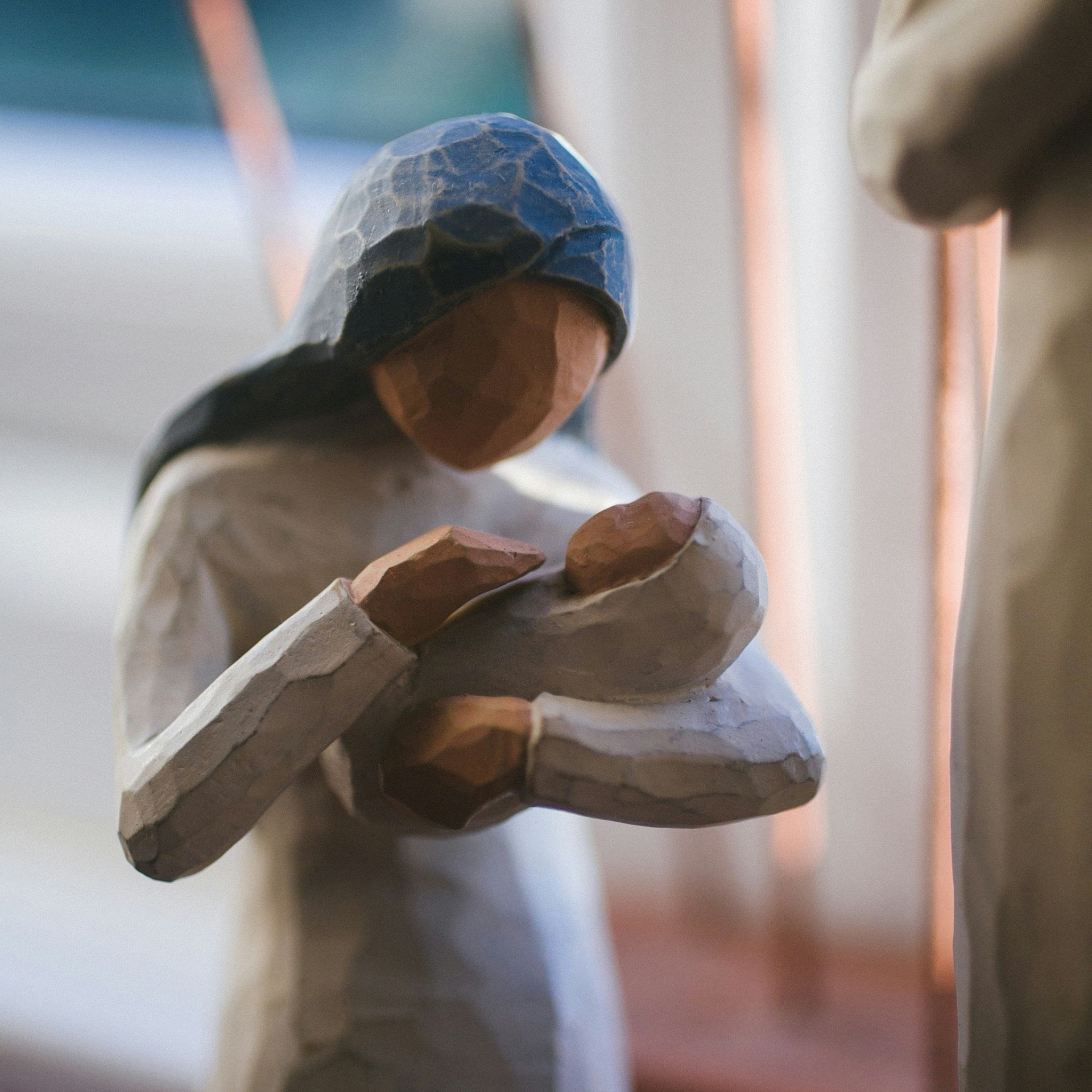Reunite ... and Belong
Sermon: Where Do You Belong?
2024-35
sermon preached at Church of the Good Shepherd, Federal Way, WA www.goodshepherdfw.org
by the Rev. Josh Hosler, Rector
First Sunday after Pentecost: Trinity Sunday (Year B), May 26, 2024
Isaiah 6:1-8 ; Psalm 29 ; Romans 8:12-17 ; John 3:1-17
On my way to Good Shepherd, I drive past the shopping area on 320th and Pac Highway. Recently I noticed a sign there that urges people to rent space for their business. It says, in large, friendly, sans serif letters:
“You belong here.”
Somebody’s marketing department worked very hard to arrive at that phrase. It tugs at me. It makes me wonder, “Do I? Do I really belong here?”—even though I have no desire to rent space in a strip mall. Nevertheless, the phrase stokes my sense of longing.
So it should have come as no surprise to me the other day when I was driving elsewhere in Federal Way and I passed a church with a large banner proclaiming, in friendly, sans serif letters—you guessed it—“You belong here.”
I had a very different reaction to that banner. I could regard the strip mall’s marketing with interested detachment because I had no investment in what was being offered. But when it comes to the church … well, I already know where I belong! So to be told that I actually belong somewhere else triggered suspicion. How dare they try to manipulate me?
And then I remembered that I had programmed the sign outside our building to display a new, modified version of the Episcopal shield with Pride colors, and a phrase only slightly different: “You belong.” Not “You belong here,” though that’s always my fervent hope for people who come into contact with Good Shepherd, but just … “You belong.”
And I remembered that a few years ago, we used a similar phrase to talk about Good Shepherd during our annual pledge campaign: “A place to belong.”
Is belonging a manipulative idea?
One thing’s for sure: those who say “You belong here” are saying it because they recognize that a lot of people in our community fear that they don’t belong. We know that so many feel isolated and lonely. To insist, “Oh yes, you do belong, and you belong here!” can be a real, earnest response—a genuine desire to connect. Or it can be a cynical ploy to get people to give you their money.
When I invite people to belong to Good Shepherd, it’s not because I expect them to turn in a pledge card. I make that invitation, to be sure, because money actually gets things done in this world, and when we pool our money, we help take care of real human needs. I also invite people to get engaged in the ministries of the church, because church isn’t merely a place to belong to. The church is what we become as we come to know God as the source of all our longing.
So in the church, we are never consumers. Human beings are not a means to an end, but an end in ourselves. That’s one way that things are supposed to work differently in the church, as opposed to the rest of the world.
Interesting: I just noticed for the first time in my life that that the word “belonging” contains the word “longing.” To belong is to be … and to long. One of the main things we do in the church is to trust that even our longing to belong reunites us with our Source. The eternal home we long for is separate from this world but somehow intersects with it, because of who God is and what God is like. So belonging to God is our default setting.
When Paul writes to the Romans, he wants them to know this. If it could ever have been said that we didn’t belong to God, says Paul, that is no longer the case. Paul talks about shifting from a spirit of slavery and fear … to a spirit of adoption. We are not God’s free labor; we are God’s children.
The prophet Isaiah, in his famous call story, has a direct encounter with God’s divine holiness and survives—not because Isaiah is strong and powerful, but because God has decided he belongs. Isaiah can stand in God’s transcendent presence and not die, because God wants him—Isaiah specifically. In response to this fundamental experience of belonging, Isaiah chooses to dedicate his entire life to whatever God asks of him.
And when Nicodemus, a leader of the Pharisees, comes to Jesus in the dead of night out of genuine curiosity, Jesus gets poetic. He says, “No one can see the Kingdom of God without being born from above.” Many Christians say “born again,” but Nicodemus only phrases it that way because he misunderstands! No, stick with “born from above,” but don’t fall into thinking it’s a code to be cracked. It’s not. It’s poetry.
John’s whole gospel is steeped in poetry. I imagine his little struggling community of first- and second-century Christians trying to wrap their brains around the concept of Christ and being told by their catechists: “Stop trying to think your way into it! This isn’t algebra—it’s wisdom. You need to feel it.”
“The wind blows where it chooses, and you hear the sound of it, but do you do not know where it comes from or where it goes. So it is with everyone who is born of the Spirit.” To be born of the Spirit is not only to belong, but to know and understand that we belong, ultimately, to the One who created us. If we have ever felt that we don’t belong, the time has come to hear the Good News that this has never been the case. And it’s not just because God arbitrarily needs creatures to do something for God. God doesn’t actually need us at all. God creates us because God wants us.
Today is Trinity Sunday, the day when we acknowledge—though we’ll never fully understand—the proclamation that God is three persons in one, a community of being and belonging. God has always been in relationship with Godself: not lonely, not needy, but overflowing with love. I tell the story like this: God wanted to share the love God shares within Godself, so God created a whole universe of individual consciousnesses to experience love from their own perspective. But my explanation isn’t an objective fact. It’s poetry that can help point us toward the objective fact—the Source of ultimate belonging that we have longed for all our lives.
You may be used to regarding the Trinity with some degree of detachment: “Yeah, that’s just one of the weird things we say in church, but it doesn’t have anything to do with me, really.” On the contrary, I think our Christian faith falls apart without the Trinity. It’s the only way I can make sense of the story of Jesus. If God merely sent or appointed a human being to be among us and teach us and love us—even a human being endowed with divine power to work miracles—but then that person somehow had to die to reunite us with God? That would be a form of divine child abuse—the Son is forced to suffer to pay a huge outstanding debt to an angry, bloodthirsty deity.
But if that human being is God, we’re talking about something very different. God doesn’t send someone to die. God actually chooses to die, to interrupt the whole system of debt and repayment, to grab our attention and shout, “Hey! I’m here, and I love you, and you belong!”
If God dies, then God exposes the forces of evil for what they really are. They are a cynical, manipulative marketing department. They teach us that we can only belong if we fall on our knees and grovel in fear, turn our lives over completely to something others tell us about, give up our will and our very nature because they cannot be trusted. The forces of evil fundamentally disrespect human beings, calling us dirty and worthless. If a human being dies for us to repay a divine debt, what’s left for it except to feel forever guilty that we didn’t do life better, surrender more fully, follow all the rules, so that Jesus wouldn’t have had to die?
But if God is born, and God goes to death willingly, and God is buried, and God comes back to us again, something very different is going on. God has addressed the infinite power dynamic between human beings and their creator. God has affirmed for us: “I don’t want you to grovel before me. I don’t want you to hate yourselves. Yes, you exist within a limited and limiting realm because I want you to keep your independence and agency, to make your own choices. It’s the only way you can truly learn what love is. But this world is too painful and terrifying for me to leave you comfortless. I am not above going through everything you go through. I am here in your world with you!”
It’s all well and good to say to someone, “You belong here.” But don’t expect anyone to believe it unless you’re willing to belong here with them, to try things and fail, to apologize and grow, to learn from them and allow them to change you. That’s what relationship is for. Maybe as a result of creating us and coming to be among us, even God has changed and grown! Without this possibility, what would be the point of God having a relationship with each and every one of us?
When God addresses the seeming division, steps into the gap, accepts all the consequences of human life from birth to death and beyond … God shows us that we truly belong. When God comes back from the dead and sends the Holy Spirit to strengthen us, God shows us that our fear and pain, as horrible as they may become, are temporary.
Maybe that little bit of encouragement will be enough to reunite us with God, not just from God’s perspective, but also from our own. Maybe then our newfound understanding that we belong will help us address the isolation and loneliness in the people all around us—to gather the courage to step into the gap between us and them, so that there is no longer an “us and them.” That we all may be one with God.
Yes, you belong. I pray that you may belong here at Good Shepherd, though none of us is perfect, and yes, sometimes we do hurt each other. But I pray that you never lose sight of your ultimate belonging, and that this reassurance will strengthen you to help others know they belong as well. Amen.




